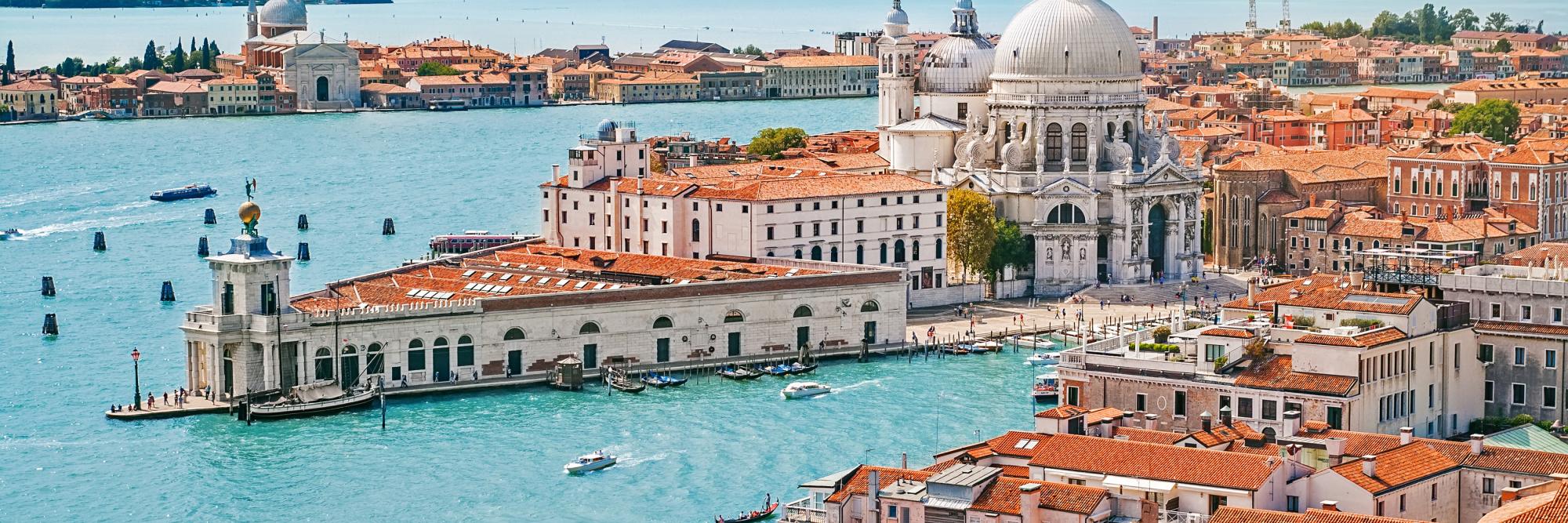Sarah Ager is a British expat living in Italy. She moved there because she fell in love, both with the country and a man, and now lives in Bologna, working as an English teacher. Sarah enjoys sharing her experiences of life in Italy as a modern Anglo Muslim woman on her blog, Hotchpotch Hijabi in Italy.
Read more about Italy in the Expat Arrivals Italy country guide or read more expat experiences in Italy.
About Sarah
 Q: Where are you originally from?
Q: Where are you originally from?
A: I’m from the UK
Q: Where are you living now?
A: Bologna, Italy
Q: How long have you lived here?
A: Two years – one year as an Erasmus student and one year working as a teacher.
Q: Why did you move to Italy; what do you do?
A: I moved because I fell in love: with Bologna and with my future husband.
About Bologna
Q: What do you enjoy most about Bologna, how’s the quality of life?
A: Bologna is the third most expensive city in Italy, but the inhabitants enjoy a very high quality of life. It’s a beautiful historic city with a vibrant student scene because Bologna boasts the oldest university in the Western world.
Q: Any negatives? What do you miss most about home?
A: Rain and Cheddar! When it’s been blisteringly hot for days, you just want a good burst of rain to clear the air. Sometimes when it’s hot I daydream about drizzle! Food-wise, I cannot express how much I miss having melted cheddar on toast. It doesn’t exist in Bologna. I have found shops which sell PG Tips, Marmite and Worcestershire sauce though.
Q: Is Bologna safe? Are there any areas expats should avoid?
A: The city centre is generally very safe, but even though the Bolognese are night birds and there are often people bustling around the centre city at night, you should use your common sense as in any city, and therefore it’s not wise to wander around on your own in isolated streets, particularly as a woman.
Q: How would you rate the public transport in Bologna? What are the different options? Do you need to own a car?
A: Walking is by far the best way to experience Bologna and to get around every day. The compact historic centre lies within the Medieval city walls and has an extensive network of porticos and arcades (the longest in the world) which shield the inhabitants from sun and rain. There is often difficulty finding parking spaces within the city walls and car parks are generally quite expensive; therefore, most people have a bike or a Vespa to navigate narrow streets and one-way systems. You can hire bikes very easily from designated sites all over the city. While many complain about the public buses, I have found that they are always on time with only the rare exception. A useful bus route (circolare) runs all the way around the medieval walls and the train station is on route. There are regular buses to the out-of-town department stores and IKEA (which has a free bus that leaves from the train station). The only problems arrive when there are strikes (scioppero) and the city grinds to a halt.
Q: How would you rate the healthcare in Italy?
A: There are several hospitals in Bologna, inside and outside the city walls, private and state. I have heard locals complain about queues occasionally, but I haven’t experienced those problems myself. The cost of medicine is quite high, and even simple things from a pharmacy such as plasters can be dear in comparison to shops like Superdrug or Boots.
About living in Italy
Q: Which are the best places/suburbs to live in Bologna as an expat?
A: I live in Santo Stefano which is quite an affluent part of the city (my workplace is next to former prime minister, Romano Prodi’s apartment). The Zamboni area is the vibrant student heart of the city, which is great if you’re studying in Bologna but possibly a bit loud if you’re planning on working in the city. The area surrounding the main public garden (Giardini Margarita) is also very popular as it is where the city congregates in summer to walk their dogs, jog, roller skate, play guitar, and even tightrope between trees!
Q: How do you rate the standard of housing in Bologna?
A: The standard varies considerably depending on the area and the landlords.
Q: What are the locals like; do you mix mainly with other expats?
A: The locals are generally very friendly. Bologna’s historic centre is compact which create a nice sense of community which is harder to find in large cities like Milan.
About working in Italy
Q: Did you have a problem getting a work visa/permit for Italy?
A: Bureaucracy in Italy is notoriously complicated, and you get caught in catch-22 scenarios. For instance, to become a resident you need a bank account but to get a bank account, you need to be a resident. So you will spend a lot of time going from office to office in order to get things sorted. Thankfully I’m part of the EU, and so I didn’t need a work permit or visa.
Q: What’s the economic climate like in Bologna, is there plenty of work?
A: At the moment, Italy is going through an economic crisis, and so there is more unemployment in Bologna than there was a few years ago. The availability of work depends on the sector you work in though. As an English teacher, I’ve found my skills are actually in demand as many Italians are concentrating on learning English in order to boost their chances of finding a job.
Q: How does the work culture in Italy differ from home?
A: Italy has a reputation for a relaxed attitude to work and for coming to a standstill at lunchtime. As a result, I arrived in Bologna with the notion that I'd be having siestas every day and that work would be a doddle. However, this is not necessarily the case. The north of Italy at least is far more work orientated (particularly cities like Milan, Turin and Bologna) and I'd say lunch breaks as the same length as in the UK. Work hours can be very long, unpredictable, or even a bit strange. For instance, I was once interviewed for a job where the work hours were from 5-10pm for seven days a week, meaning that you wouldn't have a full day off unless it was a public holiday! As another example, I now work about 40 hours a week and during my first year I would begin work at 9am and usually finish between 9-10pm with only a few half hour breaks here and there. In most cases, employers are quite open to negotiation, but only once they've known you for a while.
And finally…
Q: Is there any other advice you like to offer new expat arrivals?
A: If you've arrived and are looking for a place to live, I'd aim for an apartment or house within the medieval city walls or very close to the city walls. This means that you'd always be within a comfortable walking distance to the city centre. Generally speaking, the accommodation within or near to the city walls (particularly in the southern part) is nicer than in the suburbs, which tend to have cheaper apartment blocks or be a bit neglected. If you are near the city walls, it also means that you can easily access the circolare bus route, which will take you straight to the station and all the main roads of Bologna.
~ Interviewed September 2012



